
Launching their careers against the backdrop of World Oceans Day, a few young marine scientists are getting their feet wet, teaming up with us to conduct coral reef research and restoration around The Bahamas.
We launched our marine science summer internship program last week, embodying the 2021 World Ocean Day theme, “The Ocean: Life and Livelihoods.” The goal is to train and support students looking to gain skills in ocean conservation and stewardship while building a sustainable, blue economy.
“We hope to help young people gain exposure to different career paths in marine science,” said Dr. Karlisa Callwood, director of PIMS’ Community Conservation, Education & Action program. “From coral reef restoration to fisheries research, the practical experiences we provide are stepping-stones to careers in ocean conservation. By making these tools, trainings, and experiences accessible, we hope to contribute to building the next generation of Bahamian conservation leaders.”
This summer, PIMS interns will monitor ocean-based coral nurseries and restoration sites, utilize state-of-the-art technology to model and analyze coastal ecosystem datasets, and conduct stakeholder surveys in fishing communities.
Our interns will also survey the abundance of invasive lionfish and herbivorous fish on reefs and assess the spread and treating of the devastating “Coral COVID” (i.e., Stony Coral Tissue Loss Disease (SCTLD)).
“As a country we need more scientists and if not that, then more people who are interested and concerned for what’s happening in and around our natural environment,” said Meghyn Fountain, one of PIMS interns.
Fresh out of university, the 23-year-old earned her Bachelor of Science in marine biology from Dalhousie University. She anticipates putting her scuba diving skills to good use this summer researching SCTLD.
“I hope to learn more about coral reefs and restoration efforts,” said Fountain. “As one of the most important and biodiverse ecosystems on earth, I think that we should be doing more… especially since we have the third largest barrier reef in the world.”
Measuring 190 miles long, the Andros Barrier Reef is among the world’s largest, continuous coral reefs. A hub of marine biodiversity, The Bahamas and the world depend on a healthy underwater habitat for livelihood, to cut carbon dioxide emissions and shoreline protection, among other benefits.
However, pollution, disease, overfishing, and climate change are causing the world’s coral reefs to disappear at an alarming rate. The world has already lost roughly half of its coral reefs over the last 30 years, and up to 90 percent of corals may die within the next century.
World Oceans Day, celebrated Tuesday, June 8, aims to inform the public of the impact of human actions on the ocean and galvanize a global movement to sustainably manage the world’s oceans, according to its founder, United Nationals Environment Programme (UNEP).
“What our country needs most is enthusiastic young scientists, especially during a time like this where we are seeing the grave effects of climate change and other problems such as overfishing and ocean pollution,” Fountain said.
After she completes her internship, Fountain intends to pursue a PhD in marine biology.
“I aspire to be a prominent scientist working in The Bahamas and around the Caribbean, helping with conservation efforts with either the conch or coral reefs,” she said. “I would like to inspire the younger generation as well by getting primary and high school students involved in marine science through afterschool clubs and helping with scholarships.”
This year marks the beginning of the UN’s Decade of Ocean Science for Sustainable Development. It run from 2021 to 2030. The objective is to strengthen international cooperation to develop scientific research and innovative technologies that can connect ocean science with societal needs.

Build a Coral Reef for the Holidays | PIMS x Partanna
PIMS is partnering with Partanna to build a 100m² carbon-negative reef. Rick Fox is matching donations up to $25k. Help us build a sanctuary for the future.
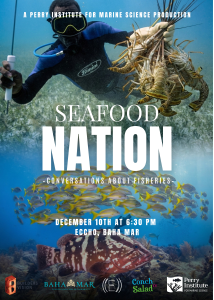
“Seafood Nation” Documentary Premiere Explores the Heart of Bahamian Culture and the Future of Fisheries
NASSAU, The Bahamas | December 5, 2025 – From the bustling stalls of Potter’s Cay to family kitchen tables across the archipelago, seafood is far more than just sustenance in
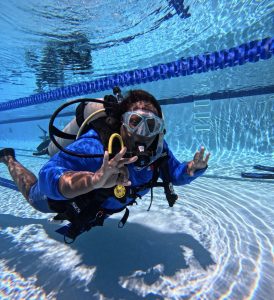
PIMS and Disney Conservation Fund Partner to Train 19 Government Divers
PIMS dive training in Nassau strengthened national coral restoration capacity across government agencies. Bahamas Dive Training Builds National Coral Restoration Capacity Last fall, between the months of September and October,
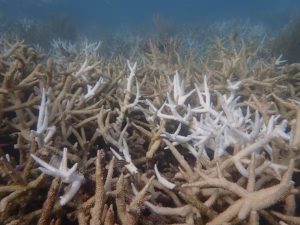
Florida’s Coral Reef Crossed a Line: What Functional Extinction Really Means for Elkhorn and Staghorn Corals
Reefs didn’t just bleach. They functionally vanished in one summer. A new Science study co-authored by researchers from the Perry Institute for Marine Science (PIMS) has found that Florida’s two
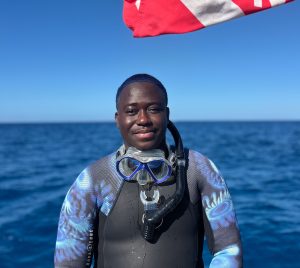
Q&A: Understanding the IDC Course at PIMS with Duran Mitchell
A former aquarist turned coral conservationist, Duran is passionate about understanding how all marine life connects. PIMS & IDC: Empowering New Dive Instructors for Marine Conservation PIMS & IDC: Empowering
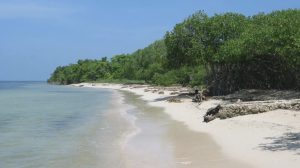
Forbes Shines a Spotlight on Coral Reef Restoration in the Caribbean
When Forbes highlights coral reef restoration, it signals something powerful: the world is paying attention to the urgent fight to protect reefs. And solutions are within reach. Recently, Forbes featured Dr. Valeria



